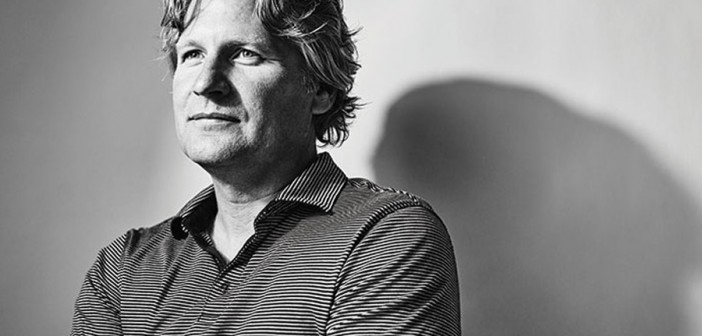Course Correction: How Contravent turned failure into boundless success
Like many entrepreneurs, Jay Williams, CEO of advertising agency Contravent, started his company with a dream. After years working for large companies headquartered in New York City, wining and dining customers, and maneuvering through political minefields, Williams felt that he was losing touch with his craft.
“I felt like I’d been doing it wrong,” he says. Williams had the idea of starting his own agency, with advertising focused in the way that Red Bull and other action sports companies do—bringing consumers to an experience, a brand and a product, rather than the other way around.
Williams’ dream included the creation of a digital platform that would more easily bring these experiences to life—something along the lines of vimeo. The platform would be the core of the company. “We were building software at that time, an over-the-top experience that would be delivering to devices content that would attract an audience,” he explains.
Trouble soon followed. While clients were interested in Contravent’s platform and investors put in money to see the software come to fruition, software developers were hard to find. Bigger companies were attracting the talent—companies with much deeper pockets than Contravent’s. Unable to get the right team together, and with time and money quickly disappearing, it seemed like Williams’ dream was fading fast.
“We had to make a decision whether to continue to invest in [the platform],” he says. “A year ago, we said, ‘We need to put this down. We’re going to go all in and become a digital agency and build custom experiences, rather than invest in our own intellectual property.’ We exploded. We learned so much from building our own tech that was applicable to all the clients that we were working with. It fueled growth beyond our expectations.”
After the switch, Contravent grew from its initial 12 employees to 52, and it has grown 680 percent since. While moving forward from his original plan wasn’t easy, Williams says the entire experience was still worthwhile. In fact, the ordeal taught him how to act and what to expect from trials in the future.
Don’t romanticize
“I’ll never romanticize being a startup ever again,” says Williams. While the idea of starting Contravent came from a dream solution Williams had for advertising, he says he wasn’t prepared for all the mundane day-to-day activities that are necessary to start a new business.
“You become such a jack-of-all-trades that you can’t dedicate yourself to that idea you originally wanted to start the startup for,” he says. “You become peanut butter over bread: I’m the guy trying to find a benefits company, I’m the guy emptying the trash. You think you’ll be working the idea you had for the company 100 percent of the time, but in reality you’re going to be doing it so much less than you expect. About 30 percent of your time you can dedicate to your idea. The other 60 to 70 percent is menial operational things you’ve never done before.”
Learn to let go
When it became clear to Williams that Contravent’s platform wasn’t going to materialize, the company had to switch directions and move forward quickly. There was no time to lament the failure—instead, Williams and his team took all of the lessons they had learned from trying to build the platform and utilized them to create meaningful content for their clients.
“We flipped the switch,” says Williams. “We were burning cash previously—and then we had to get into a whole new mindset. We thought it was going to be kind of a drag to go back to being that way, but what we learned was … we’d gotten really smart. We had something to say that was relevant and interesting. The value wasn’t the software, the value was the experience we gained from trying to solve its problems. We didn’t have a tangible thing at the end of the investment, but we have a culture built around the digital idea that’s been invaluable to us.”
Be tenacious
“I met the founder of another company … he said the difference between companies that make it and the companies that don’t is tenacity and flexibility,” says Williams. “You get so sold on your own vision that it’s hard to make those shifts. It’s hard to recognize we don’t have the team to deliver this at this phase in the company.”
When faced with that reality, Williams says that it’s easy to get bogged down in feelings of failure. But he says he’s learned that having a startup is like being in a movie trilogy. While the startup may stumble, he says, “That’s just film one. Film two will have another story.”
Williams takes comfort in the knowledge that, while it’s difficult to succeed in the digital economy, it just means there’s more opportunity to exercise creativity and fresh ideas. He’s learned that it’s better to invest in a company’s culture and standards. He constantly asks questions of his own and his team’s creations: Is the creation useful or valuable? Is it beautiful? Entertaining?
“We have this other phrase: happy and scrappy. It means be optimistic and be tenacious,” says Williams. “That’s the culture we’re trying to build. That’s the one thing that got us through the last three years—that positive, half-full idea that we’ll succeed no matter what.”

